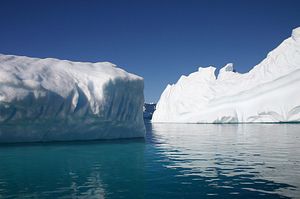China has been making waves with its political and military moves into the South China Sea, where it is seeking to assert itself as a maritime great power. But another arena of Chinese expansion has largely escaped the notice of the public in the West: its growing role in Arctic affairs. Recent months have seen a dizzying array of Chinese economic and military investments relating to the Arctic, as well as the PRC’s formal entry into Arctic regional governance organizations. Not least, China is fostering a growing (albeit unequal) partnership with Russia pertaining to the region.
The formal objectives of China’s push into the Arctic were outlined in a January 2018 White Paper, which defined the region as a zone of priority development for the PRC. The Chinese government has wasted no time pursuing those objectives. From the Urals to Siberia, Chinese companies are expanding into the Arctic region, building the foundation for future influence and profit. Russia, meanwhile, is a major player in developing the region, but remains a junior partner in Chinese ventures.
China’s focus is logical. The Arctic contains vast reserves of unexploited natural resources, including oil, natural gas, and mineral deposits. To tap into this wealth, Chinese energy companies are making substantial investments in segments of the Russian natural gas industry operating in the Arctic. Thus, China’s National Petroleum Corporation recently bought a 20 percent stake in the multi-billion dollar Yamal Liquid Natural Gas plant, a flagship project on the Arctic shore of Siberia, as a part of Russia’s recent expansion of Arctic LNG production. The plant will produce an estimated 16.5 million metric tons per year, with about one-fifth heading to China.
Another project, the China-backed pipeline “Power of Siberia,” will bring an estimated 30 billion cubic meters per year of natural gas from Russian gas fields in Yakutia to China’s energy market, and is on track for completion in 2019. Chinese companies are also pushing ahead with the “Belkomur” railway project, linking Russian mineral production in the far Ural north to the Arctic port of Arkhangelsk.
China’s new activism – and Russia’s laissez faire attitude – is notable. Moscow and Beijing have long desired an expansion Arctic and Siberian natural gas exports, primarily from Russia to China. But the two have historically disagreed on the price, with Russia demanding prices equivalent to its European clients and China angling for costs on a par with imports from Central Asia. That disagreement, however, was recently settled – and settled in China’s favor – paving the way for greater cooperation. Now, new Chinese natural gas imports from Russia are not coming from a redirection of gas currently bound for Europe, but from newly built and Chinese-bought pipelines – ones not linked to the European pipeline network.
China’s Arctic activism doesn’t stop there. Beijing is also building “icebreaker” vessels to increase its military capacity in the region, and launching initiatives to shape regional governance norms and multilateral bodies like the Arctic Council (in which China has been an observer nation since 2013) to its advantage.
The goals are unequivocal. China, in the words of Hu Kaihong of the State Information Office, identifies itself as a “Near-Arctic State” and is seeking to erect a “Polar Silk Road” in the region in parallel with its larger (and much more heavily scrutinized) Belt and Road Initiative in Asia and the Middle East.
Taken together, these initiatives by Chinese government and industry into Arctic affairs amount to the start of a sea change in the Northern Hemisphere. Russia, for geopolitical reasons, seems willing to abet China’s rise to prominence there – at least for now. As a consequence, China is increasingly acquiring interests and beginning to shaping the terrain in a region far from its shores, with potentially significant consequences for international trade and security.
Alexander Gran is a researcher at the American Foreign Policy Council in Washington, DC.

































